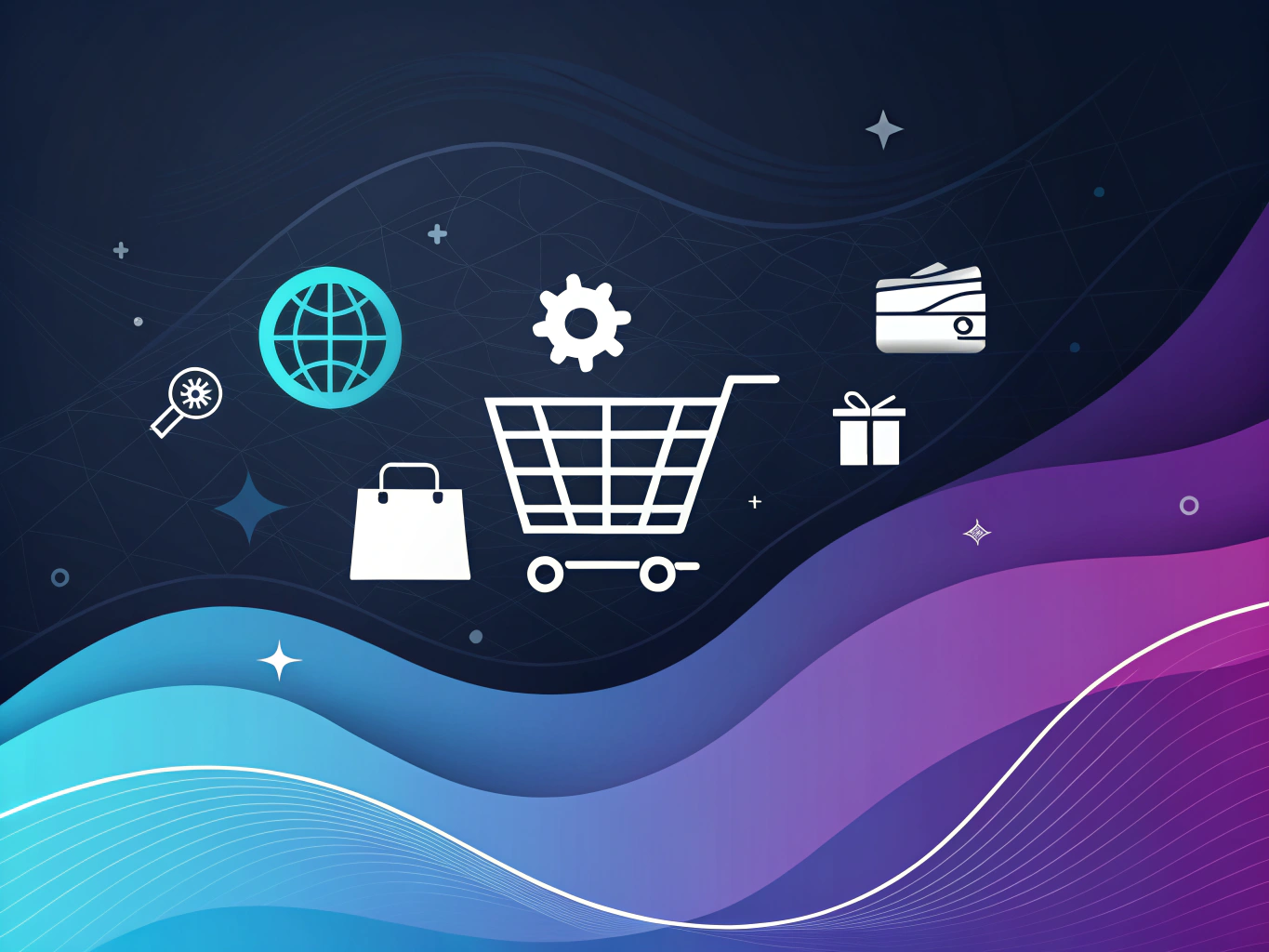Remember when Alibaba felt like the only game in town for sourcing products from China? Those days are long gone. The B2B sourcing landscape has evolved dramatically, shaped by everything from trade tensions to pandemic disruptions to an increasing demand for supplier diversity.

Yet here’s the thing – while Alibaba remains the 800-pound gorilla of B2B marketplaces, relying solely on one platform is like putting all your eggs in a very distant basket. Smart brands are discovering that the best sourcing strategy isn’t about finding an Alibaba alternative – it’s about building a diverse supplier network across multiple platforms.
Why Brands Are Looking Beyond Alibaba in 2025
Let’s address the elephant in the room: Alibaba isn’t going anywhere. With millions of suppliers and decades of market dominance, it’s still the default choice for many businesses. But the platform has its challenges – from quality control issues to minimum order quantities that can make small brands break into a cold sweat.
Think of it like dating (bear with me here). Alibaba might be your first serious relationship in the sourcing world, but should it be your only one? Probably not. Just as diversifying your investment portfolio reduces risk, expanding your sourcing platforms can protect your business from supply chain disruptions, quality issues, and pricing volatility.
The Current Challenges with Alibaba
I’ve spent years helping brands navigate B2B marketplaces, and these are the pain points that keep coming up:
- Overwhelming number of suppliers with varying quality standards
- High minimum order quantities that strain cash flow
- Communication barriers that lead to costly misunderstandings
- Limited visibility into actual manufacturing capabilities
- Increasing competition driving up prices on popular items
Top Alibaba Alternatives for Different Business Needs

DHgate: The Small-Batch Champion
If Alibaba is the wholesale superstore, DHgate is more like your neighborhood specialty shop. They’ve carved out a nice niche by focusing on lower minimum order quantities – perfect for brands testing new products or managing cash flow carefully. Their verification process isn’t quite as robust as Alibaba’s, but they make up for it with better customer service and more flexible ordering terms.
Global Sources: The Quality-First Option
Here’s a platform that’s often overlooked but shouldn’t be. Global Sources has been around since before “sourcing from China” was cool, and they’ve built their reputation on supplier verification. Their trade shows are legendary in sourcing circles, and they’ve got this neat hybrid approach that combines online marketplace features with old-school relationship building.
Made-in-China: The Manufacturer’s Directory
Don’t let the straightforward name fool you – Made-in-China has evolved into a sophisticated platform that excels at connecting buyers directly with manufacturers rather than trading companies. Their supplier verification process is particularly thorough, and they’ve implemented some impressive quality control measures.
The Rise of Regional Alternatives
One of the most interesting trends I’ve noticed is the emergence of strong regional platforms. These aren’t just Alibaba clones – they’re specialized marketplaces that understand their local manufacturing ecosystem inside and out.
IndiaMART: The South Asian Powerhouse
With India’s manufacturing sector growing faster than a startup’s burn rate, IndiaMART has positioned itself as the go-to platform for sourcing from the subcontinent. They’ve got this incredibly diverse supplier base, ranging from traditional craftsmen to modern factories, and their platform is surprisingly user-friendly for international buyers.
TradeKorea & EC21: Tech Manufacturing Excellence
South Korea has always been a technological powerhouse, and these platforms showcase the best of Korean manufacturing. Whether you’re looking for advanced electronics components or innovative textiles, the quality standards here are consistently high. Plus, the English-language support is generally excellent.
Specialized Sourcing Solutions That Make Sense

Sometimes the best Alibaba alternative isn’t a direct competitor at all – it’s a specialized platform that serves your specific industry better. This is where things get interesting, and where many brands find their competitive advantage.
Industry-Specific Platforms
I’ve seen brands transform their sourcing game by focusing on platforms that specialize in their specific industry. For electronics, platforms like HKTDC connect you directly with specialized manufacturers. For textiles, sites like TextileInfoMedia provide deep industry insights along with sourcing opportunities.
The beauty of these specialized platforms isn’t just in their focus – it’s in the ecosystem they’ve built around their specialty. You’re not just getting access to suppliers; you’re tapping into industry expertise, trend forecasting, and often, a community of buyers facing similar challenges.
Alternative Sourcing Methods
Let’s think outside the platform for a moment. Trade shows, despite what some digital evangelists might tell you, aren’t dead. They’ve evolved. Virtual trade shows are becoming increasingly sophisticated, offering the relationship-building benefits of traditional events without the jet lag.
Direct factory sourcing, while more challenging, can be incredibly rewarding. It’s like cutting out the middleman in your supply chain – more complex, but potentially more profitable. And with modern communication tools and quality control services, it’s becoming more accessible to smaller brands.
Global B2B Sourcing Platforms: The Heavy Hitters
Look, I get it. Alibaba’s been the go-to for so long that looking for an alternative feels like trying to find a replacement for Amazon. But here’s the thing – the B2B sourcing landscape is way more diverse than most people realize. And trust me, as someone who’s spent years helping brands optimize their supply chains, some of these alternatives aren’t just good – they’re actually better for specific needs.
The Chinese Powerhouses You Should Know About
Let’s start with DHgate – think of it as Alibaba’s more approachable cousin. While Alibaba often feels like you need to order enough product to fill a warehouse, DHgate gets that sometimes you just want to test the waters. Their lower minimum order quantities (MOQs) make them perfect for brands just starting out or testing new product lines. Plus, their verification process, while not perfect, tends to be more straightforward than Alibaba’s sometimes confusing supplier levels.
Made-in-China is another interesting player, and they’ve got a unique angle that I really appreciate. Instead of trying to be everything to everyone (looking at you, Alibaba), they focus specifically on connecting you with actual manufacturers rather than trading companies. This means you’re more likely to get factory-direct pricing and have more control over customization. Their quality control measures are also pretty robust – they actually send people to physically verify factories, which is huge if you’re worried about getting scammed.
Now, 1688.com is fascinating – it’s basically the Chinese domestic version of Alibaba. Here’s where it gets interesting: prices are often 20-30% lower than what you’d find on Alibaba because you’re accessing the same suppliers Chinese businesses use. The catch? The platform’s entirely in Chinese. But don’t let that scare you off – working with a good sourcing agent can unlock some serious savings here.
International Players That Pack a Punch
Global Sources is probably the most underrated platform in the game. While everyone’s fighting over Alibaba suppliers, smart brands are quietly building relationships through Global Sources’ trade shows and verified supplier network. Their supplier verification system is no joke – they actually do financial checks and production capability assessments. Plus, their focus on consumer electronics and mobile accessories is perfect if you’re in those niches.
TradeKey might not be as flashy as some others, but it’s got something special: genuine global reach. While most platforms are either China-focused or region-specific, TradeKey connects you with suppliers from Turkey to Thailand, Brazil to Bangladesh. This is huge for brands looking to diversify their supply chain (which, after recent years, should be everyone).
Regional Sourcing Platforms: The Local Champions

Asian Markets Beyond China
IndiaMART is absolutely crushing it right now. With all the talk about China+1 strategies, India’s manufacturing sector is booming, and IndiaMART is at the center of it all. They’re especially strong in textiles, handicrafts, and software services. The platform’s got its quirks – expect more back-and-forth communication than you might be used to – but the potential cost savings and quality can be worth it.
TradeKorea and EC21 are where you go when you want that perfect blend of high-tech capability and reliable quality. Korean manufacturers are killing it in beauty products, electronics components, and automotive parts. Yes, prices might be higher than Chinese alternatives, but the quality control standards often mean fewer headaches down the line.
Western Market Solutions
ThomasNet is what happens when you combine an industrial directory with modern B2B features. It’s primarily US-focused, which means higher prices but also means you’re dealing with suppliers who understand US regulations and quality standards inside and out. Plus, the platform’s search capabilities are actually useful – a rare thing in the B2B world.
For European alternatives, we’re seeing some interesting regional platforms pop up. Wer liefert was? in Germany and Europages across the EU are building solid reputations. They’re especially valuable if you need to comply with strict EU regulations or want to tap into Europe’s specialty manufacturing capabilities.
Specialized Sourcing Solutions: The Niche Players
Industry-Specific Platforms That Actually Work
Here’s where things get really interesting. Remember how I mentioned Global Sources being good for electronics? Well, there’s a whole ecosystem of specialized platforms that cater to specific industries. EC21 absolutely dominates in semiconductor components. For textiles, you’ve got platforms like TextileInfoMedia that connect you directly with mills and manufacturers.
The beauty of these specialized platforms is that they speak your language – literally and figuratively. The suppliers understand industry-specific requirements, certifications, and technical specifications. No more explaining to a general supplier why you need that specific type of flame-retardant fabric or why your electronic components need to meet certain standards.
Alternative Sourcing Methods Worth Your Time
Let’s talk about something that doesn’t get enough attention: trade shows are making a comeback, but not in the way you might think. Virtual trade shows are becoming a thing, and they’re actually pretty effective. Imagine getting the benefits of a trade show – seeing products, talking to suppliers, negotiating deals – without the jet lag and expensive hotel rooms.
Direct factory sourcing is another approach that’s getting easier thanks to technology. Tools like AI image generators (yeah, I’m biased, but hear me out) are making it possible to design products and connect with manufacturers in ways that weren’t possible before. Combine this with a good sourcing agent on the ground, and you’ve got a powerful alternative to traditional marketplace platforms.
Industry associations are also stepping up their game. Organizations like HKTDC (Hong Kong Trade Development Council) aren’t just for networking anymore – they’re building digital platforms and verification systems that make supplier sourcing more reliable. It’s like having a trusted intermediary who actually knows what they’re talking about.
Platform Selection Strategy: Making the Right Choice

The Real Deal on Evaluation Criteria
Here’s something most articles won’t tell you: the best platform isn’t always the one with the most suppliers or the lowest prices. It’s the one that matches your specific needs and risk tolerance. When I’m helping brands choose a platform, we look at things like supplier verification processes (how thorough are they really?), minimum order quantities (can you start small and scale?), and payment protection (what happens when things go wrong?).
But beyond these basics, you need to consider the platform’s ecosystem. Does it have integrated logistics solutions? What about quality inspection services? How responsive is their customer support when you’re in crisis mode at 3 AM because a shipment’s stuck in customs?
Regional Sourcing Platforms: Beyond the Chinese Giants
Look, I get it. When we talk about Alibaba alternatives, everyone immediately jumps to other Chinese platforms. But here’s the thing – there’s a whole world of manufacturing prowess beyond China, and smart brands are starting to catch on.
The Rise of Asian Manufacturing Hubs
IndiaMART has become a powerhouse for sourcing everything from textiles to industrial equipment. With over 7 million suppliers (yeah, you read that right), it’s giving Alibaba a run for its money. What makes it particularly interesting is India’s growing emphasis on quality control and intellectual property protection – something that’s been a constant headache with Chinese suppliers.
Then there’s TradeKorea and EC21. South Korean manufacturing isn’t just about Samsung and LG anymore. These platforms are crushing it in high-precision electronics, beauty products (K-beauty anyone?), and innovative textiles. The quality standards? Often higher than what you’d find on Alibaba, though prices reflect that.
Western Markets: The Premium Play
ThomasNet is like the LinkedIn of American manufacturing. It’s not trying to be an Alibaba alternative – it’s doing its own thing, connecting you with verified U.S. manufacturers who live and breathe quality standards. Sure, you’ll pay more, but for brands targeting premium markets, that “Made in USA” label can be worth its weight in gold.
Specialized Sourcing Solutions That Actually Work

Here’s where things get interesting. Instead of trying to be everything to everyone (looking at you, Alibaba), some platforms have gone super-niche. Think Maker’s Row for American artisanal manufacturing, or FG Market for specialty goods.
The Trade Show Renaissance
Remember when we thought virtual would kill physical trade shows? Plot twist: they’re back and better than ever. The Canton Fair might be the granddaddy of them all, but regional shows are where the real magic happens. You can actually touch products, meet suppliers face-to-face, and build relationships that no chat function can replicate.
Making Your Platform Choice (Without Losing Your Mind)
Let’s be real – choosing the right sourcing platform is like picking a life partner. You need compatibility, trust, and a shared vision for the future. Here’s what actually matters:
- Verification processes that actually verify (not just collect fees)
- MOQs that won’t force you to remortgage your house
- Payment protection that doesn’t make you sweat bullets
- Shipping options that won’t eat all your profits
The Real Cost of Sourcing
Everyone talks about unit costs, but let’s dig deeper. Platform fees can be sneaky. Transaction costs add up. And don’t get me started on shipping expenses – they’ve been more volatile than crypto lately. The key? Look at total landed cost, not just the sticker price.
Risk Management: Because Murphy’s Law Is Real
I’ve seen too many brands learn this the hard way: cheaper isn’t always better. Quality control isn’t just about checking boxes – it’s about building systems that scale. Factory audits aren’t exciting, but neither is explaining to customers why their products fell apart.
The Future of B2B Sourcing (Spoiler: It’s Already Here)
AI isn’t just changing how we find products – it’s revolutionizing how we verify suppliers, manage quality control, and handle logistics. Blockchain might sound like a buzzword, but for supply chain transparency? It’s a game-changer.
Making It All Work: A Framework That Actually Delivers
After helping hundreds of brands navigate this landscape, here’s what I know works:
- Start with your non-negotiables (quality standards, MOQs, lead times)
- Build relationships with multiple suppliers across different platforms
- Invest in quality control systems before you need them
- Keep your options open – the best platform today might not be the best tomorrow
The Bottom Line on Alibaba Alternatives
Here’s the truth – there’s no perfect Alibaba alternative because there shouldn’t be. Different platforms serve different needs, and the smartest brands are the ones that understand this. Whether you’re looking at sites like Alibaba, exploring Chinese Amazon equivalents, or venturing into new territory with European alternatives, success comes down to matching your needs with the right platform mix.
The future of sourcing isn’t about finding the next Alibaba – it’s about building a diversified sourcing strategy that can weather any storm. And maybe that’s the biggest lesson here: in a world of endless options, the winners aren’t the ones who find the perfect platform, but those who build the perfect strategy.
For more insights, check out our articles on tool comparisons and Amazon selling guides. Plus, learn how to sell digital products on Etsy and explore ClickFunnels for ecommerce. You might also be interested in our take on OMS systems and AI tools.
If you’re wondering about the differences between HEIC and JPEG or how to cancel Shopify, our blog has got you covered. Don’t miss our insights on Vendor Central and how eBay Bucks can work for you. Finally, explore whether Black Friday is global and check out our list of top ecommerce chatbots.
👉👉 Create Photos, Videos & Optimized Content in minutes 👈👈
Related Articles:
- How to Sell on Shein: A Beginner’s Guide to Success
- Helium 10 vs Jungle Scout vs Productscope AI: How It Helps You
- What Are You Allowed to Sell on Amazon in 2025? – ProductScope AI
Frequently Asked Questions
Who is Alibaba’s biggest competitor?
Alibaba’s biggest competitor is often considered to be Amazon. While both platforms serve different primary markets—with Alibaba focusing more on business-to-business transactions and Amazon on consumer retail—they compete on many fronts, including cloud computing, logistics, and e-commerce. Other significant competitors include JD.com and Tencent in the Chinese market.
What is the best website for sourcing products from China?
One of the best websites for sourcing products from China is Global Sources. It provides a platform for manufacturers and suppliers to connect with international buyers, offering a wide range of products. Known for its trade shows and verified supplier network, it helps ensure quality and reliability in sourcing.
Is there fake Alibaba?
While Alibaba itself is a legitimate and well-established platform, there are fraudulent sites and scams that attempt to mimic its brand. It’s crucial for users to ensure they are on the official website and to verify suppliers through Alibaba’s own security and verification processes to avoid scams.
What is the best wholesale website?
One of the best wholesale websites is DHgate. It offers a wide range of products at competitive prices, connecting buyers with Chinese wholesalers. The platform is known for its buyer protection policies and ease of use, making it a popular choice for small businesses and retailers worldwide.
What is the best dropshipping platform in the Philippines?
In the Philippines, Oberlo is a popular dropshipping platform that integrates seamlessly with Shopify, allowing entrepreneurs to easily import products from suppliers and ship them directly to customers. It offers user-friendly tools and a vast product selection, making it ideal for those looking to start or expand their e-commerce business.
About the Author
Vijay Jacob is the founder and chief contributing writer for ProductScope AI focused on storytelling in AI and tech. You can follow him on X and LinkedIn, and ProductScope AI on X and on LinkedIn.
We’re also building a powerful AI Studio for Brands & Creators to sell smarter and faster with AI. With PS Studio you can generate AI Images, AI Videos, Chat and Automate repeat writing with AI Agents that can produce content in your voice and tone all in one place. If you sell on Amazon you can even optimize your Amazon Product Listings or get unique customer insights with PS Optimize.
🎁 Limited time Bonus: I put together an exclusive welcome gift called the “Formula,” which includes all of my free checklists (from SEO to Image Design to content creation at scale), including the top AI agents, and ways to scale your brand & content strategy today. Sign up free to get 200 PS Studio credits on us, and as a bonus, you will receive the “formula” via email as a thank you for your time.
